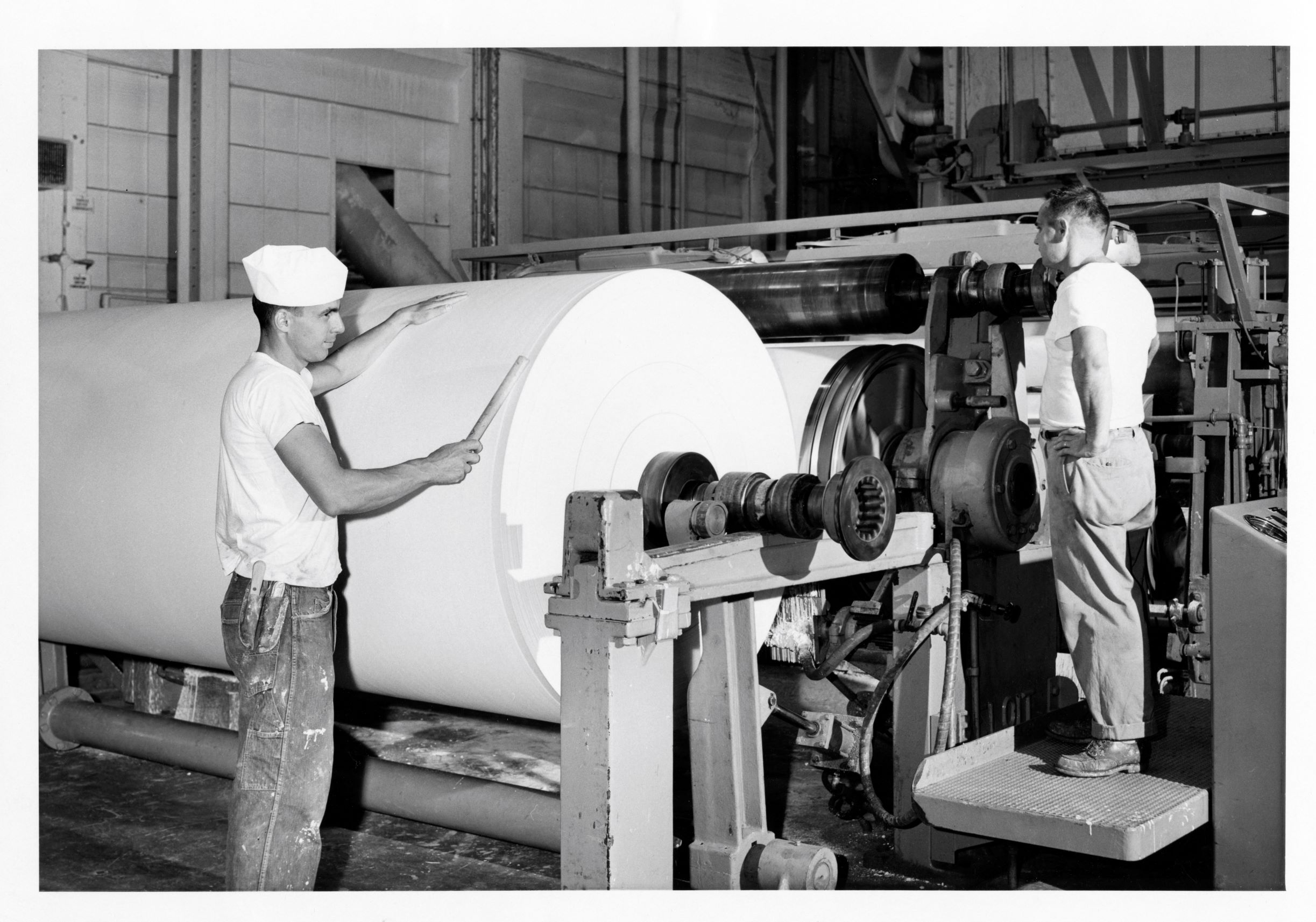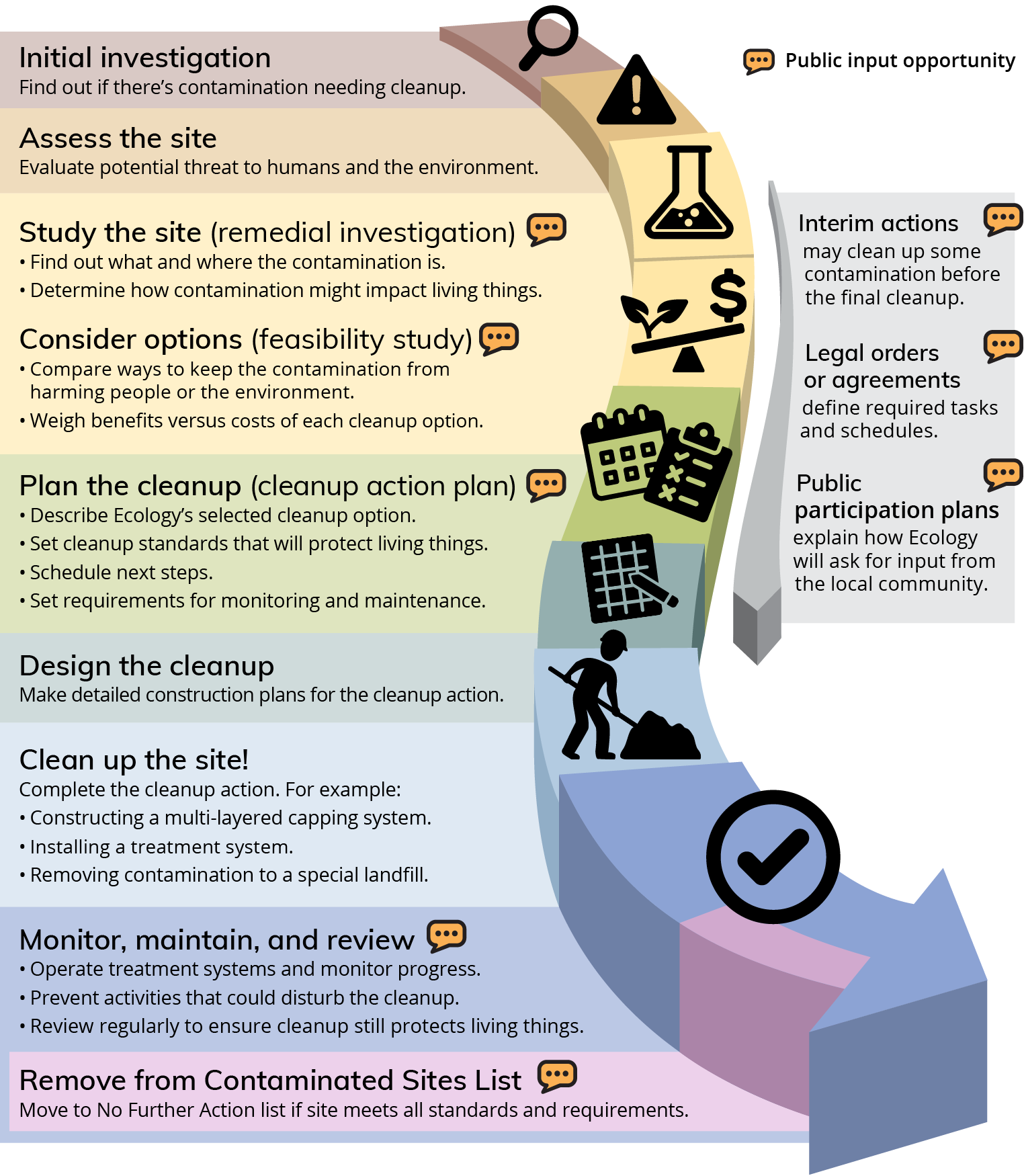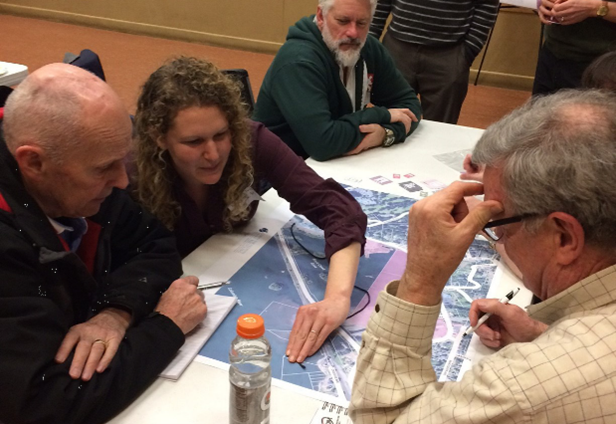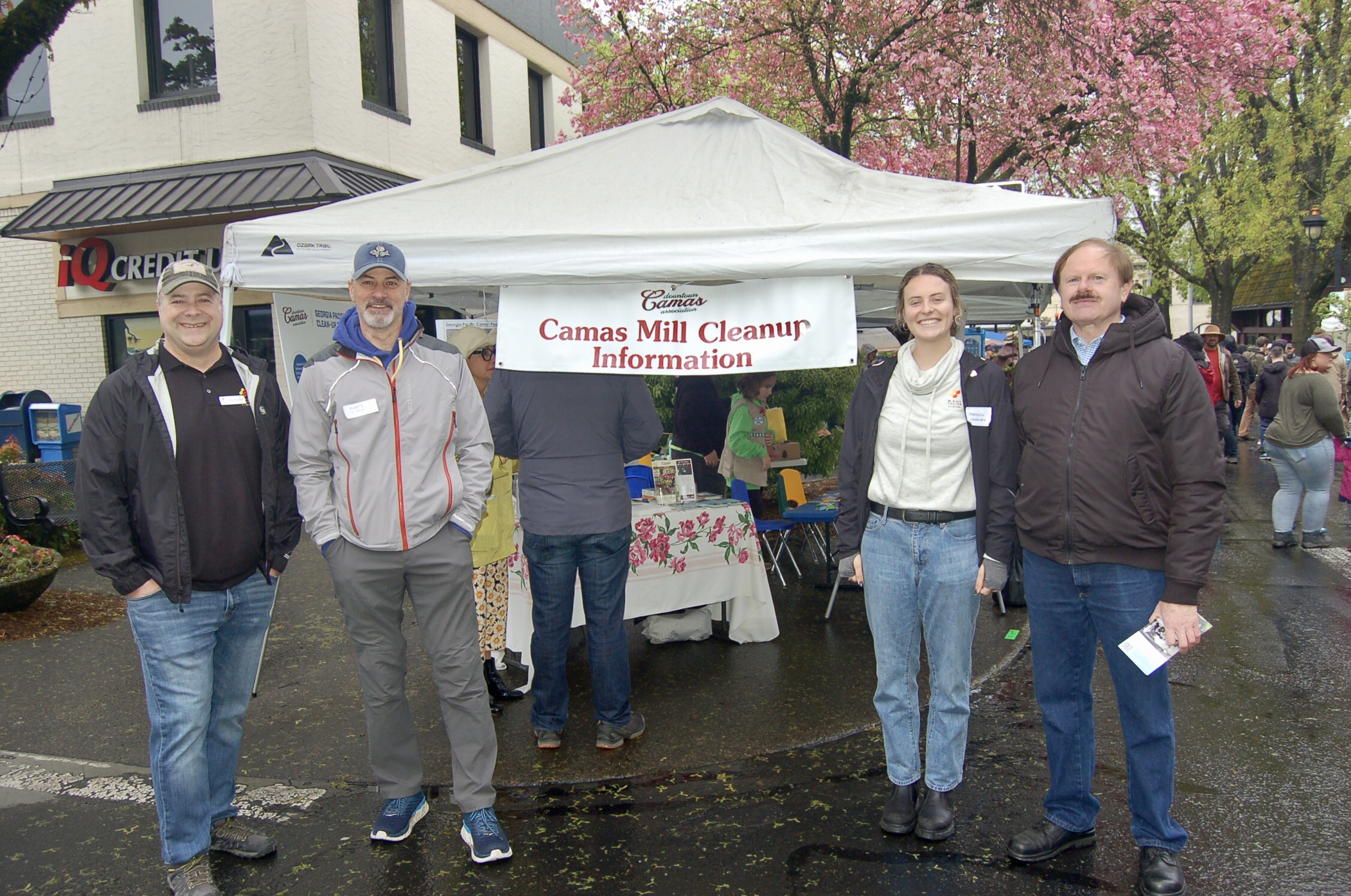Camas Mill Information
Click here for a FAQ sheet about the Camas GP Mill Cleanup process.
A few new recent items here:
City of Camas Letter to Ecology, 1-10-25, stating their view on the mill cleanup level and potential for the property, whenever it may become available in the future.
An excerpt:
“…we believe moving towards an unrestricted cleanup level would ultimately be warranted based not only on the current zoning but the desire to complement and enhance the surrounding community, provide for the greatest flexibility of uses in the future, and to safeguard public health and environmental quality.”
Per Mady Lyon, mill cleanup site manager from Ecology:
“Ecology has not selected cleanup levels for the GP Camas Mill cleanup. We will not evaluate cleanup levels at the site until we initiate the Cleanup Action Plan phase of cleanup, which would not take place until after we have completed the Remedial Investigation and Feasibility Study phases.” (see timeline below)
—————
GP Camas is in the process of renewing their National Pollutant Discharge Elimination System (NPDES) permit. This is a routine matter and a call for public comment is required. Changes to the Permit: The draft proposed renewal permit contains more stringent treated wastewater discharge limits for biochemical oxygen demand (BOD5), solid particles (TSS), and pH. Ecology also removed the limit associated with bleaching operations at the mill as the Kraft process which used bleaching ended in 2018. Additional proposed changes to the permit include: • A study to evaluate if G-P Camas is sending PFAS to the wastewater treatment plant. • Updating the mixing zone study to reflect the changes to the treated wastewater discharge after the Kraft pulping operations ended in 2018. • New annual E.coli monitoring, and • Weekly rainfall monitoring.
There are multiple ways to give public comment including a virtual public hearing on March 4 at 5:30pm. Details here in a fact sheet from Ecology. Comments deadline by March 13, 2025.
—————
———————
Stay informed about the GP cleanup process! Sign up here to receive email updates
See News & Events in right sidebar (or below underneath Contacts if you’re on a mobile device) for Upcoming Community Advisory Group Meetings
Info Rack Card in English, Spanish and Russian.
We welcome your feedback on the GP cleanup process. Send your comments and questions to:camaswamillinfo@downtowncamas.com
Cleaning up the Camas paper mill
More than a century of industrial activity at the Georgia Pacific (GP) pulp and paper mill in Camas has led to potential contamination in soil, sediments, and groundwater in and around the mill. Contamination could have occurred due to regular operations, spills, or leaks.
In August 2021, the Washington State Department of Ecology (Ecology) and GP issued an Agreed Order to investigate potential contamination and evaluate how to clean it up. GP will conduct the cleanup activities in accordance with the Ecology’s Toxic Cleanup Program’s statutes and regulations. GP has not communicated any plans to stop operations at the mill; it continues to be an active paper mill employing people in Camas.
Investigation and cleanup is a long, complex undertaking. As specified through a public participation grant from Ecology, the Downtown Camas Association (DCA) has taken on the role of engaging and advising members of the community over the next few years. DCA will interpret technical information and share it with the community to help provide information, involve the community, and solicit feedback during the investigation and cleanup process that will be led by GP and overseen by Ecology.
About the site
 The mill has been an integral part of the region’s history, community, and economic development since its beginnings in 1883, when investors purchased 2,600 acres to create the Columbia River Paper Company. The mill is currently owned and operated by GP, which acquired the property in 2000. Though the mill that has shut down most of its operations, it continues to:
The mill has been an integral part of the region’s history, community, and economic development since its beginnings in 1883, when investors purchased 2,600 acres to create the Columbia River Paper Company. The mill is currently owned and operated by GP, which acquired the property in 2000. Though the mill that has shut down most of its operations, it continues to:
- Make and convert paper from purchased wood pulp
- Treat its wastewater and discharge it to the Columbia River
Residents and businesses in Camas and Clark County have benefited from over a century of partnership and economic activity at the mill. As this property continues to be a key feature of the region and for Camas in particular it is critical that the community thoughtfully consider the future of the mill site. How contamination on the property is cleaned up affects how it may be redeveloped in the future. It’s important that the community is involved in the cleanup planning and implementation, so the outcome can continue to support the community and region.
Project timeline
Dates are approximate and subject to change based on Ecology’s cleanup process, which is guided by the Washington State Model Toxics Control Act. Learn more about the steps in this process here.
December 2021: Establish Community Advisory Group (CAG)
January 2022: Develop and begin implementing public involvement plan
January 2022: Ecology provides draft Remedial Investigation (RI) Work Plan for public review and comment
Spring 2022: Submit CAG comments and public comments to Ecology
Early 2025: Remedial Investigation (RI) Work Plan (sampling & analysis) finalized by Ecology
2025: GP performs ongoing sampling and analysis
2026: GP submits RI report to summarize sampling results for Ecology’s review
2027 or later (depending on RI findings): Ecology and GP develop Cleanup Action Plan
2027 or later (depending on RI findings): Site cleanup begins
For information on how the Washington Site Cleanup Process works, visit here. See info below for main steps in the process:

For a printable Washington Cleanup Process infographic page, click here.
Public participation
 DCA’s goal is to provide the public with regular opportunities to learn about investigation and cleanup and have input on this process to better inform Ecology of the community’s desired outcome. DCA will engage community members through a variety of communication tools and events to help inform the people about the process and findings. The DCA also hopes to ensure broad feedback to Ecology throughout the investigation and cleanup process.
DCA’s goal is to provide the public with regular opportunities to learn about investigation and cleanup and have input on this process to better inform Ecology of the community’s desired outcome. DCA will engage community members through a variety of communication tools and events to help inform the people about the process and findings. The DCA also hopes to ensure broad feedback to Ecology throughout the investigation and cleanup process.
As a first step in the public participation process, the DCA convened a Community Advisory Group (CAG) to get the community involved early in the proposed remedial investigation plan that GP will implement over the coming years.
The first two years were managed through a Public Participation Grant from Ecology. The funds allow a community group to engage experts to interpret the detailed technical documents from both GP submittals and Ecology responses and to manage the CAG process of meetings, minutes, etc. Through an RFP process (Request for Proposal), an environmental consultant with local offices, Maul, Foster and Alongi, filled that role. Despite not receiving a second 2-year grant from Ecology, the Community Advisory Group agreed to continue in a reduced manner within the capacity of this now fully volunteer effort. DCA has continued to facilitate these efforts with staff and board member support. Future grant opportunities may be pursued in the next grant cycle.
In May of 2024, the CAG adopted an updated Charter defining the scope, vision, goals and functions of the CAG, including updated Public Participation methods. For the full charter, visit here.
How to Stay Informed
DCA’s public involvement will parallel the Ecology process and will actively and directly engage the local community. There are many ways to learn more and participate in this process. Your input is encouraged and appreciated!
Community Advisory Group (CAG)
- The CAG will supervise the DCA’s public involvement consultant’s work, provide broad community outreach, and encourage opportunities for public involvement in the cleanup process. The CAG will also review technical materials and respond to Ecology and GP regarding the cleanup process, findings, and plans.
- Interested community members applied and an advisory group was formed and members announced December 16th (see press release link in right sidebar). Advisory group participants were selected based on a standardized selection process that was open to the public and prioritized representation of varied lived experiences and subject matter expertise.
- The CAG will meet every other month starting in January 2021 and then every three months starting in July 2023. CAG meetings are open to the public and will be announced on this web page (see right sidebar).
- Through the CAG’s work, the community will have opportunities to see and understand plans for cleanup and provide input on them through public meetings and communications.
 Events and meetings
Events and meetings
Ecology plans to offer public meetings and DCA will host opportunities within the Camas community for those who would like to learn more about the cleanup and provide feedback about the process. Stay tuned to this web page and sign up for email updates for dates, times and locations when events are planned.
Email updates
DCA will send email updates to share project news and announce event information in advance of key milestones. Sign up for emails here.
Ecology will distribute periodic email updates with project information and schedule updates. If you would like to be added to the mailing list for this site, please contact Tara Roberts at 360-280-4325 or tara.roberts@ecy.wa.gov.
Project Resources
- Ecology Public Participation Plan
- Ecology Public Participation Grant information
- Georgia Pacific Consumer Operations Agreed Order
Contacts
- Downtown Camas Association
Caroline Mercury, DCA Past President, Georgia Pacific (retired)
camaswamillinfo@downtowncamas.com
360-904-0218 - Washington State Department of Ecology – Public participation
Tara Roberts, Public Involvement Coordinator
tara.roberts@ecy.wa.gov
360-280-4325 - Washington State Department of Ecology – Site coordination
Mady Lyon, Site Manager
mady.lyon@ecy.wa.gov
360-628-3250
This project was funded in 2021-2023 in part through a Public Participation Grant from the Washington State Department of Ecology. The content was reviewed for grant consistency but is not necessarily endorsed by the agency.

